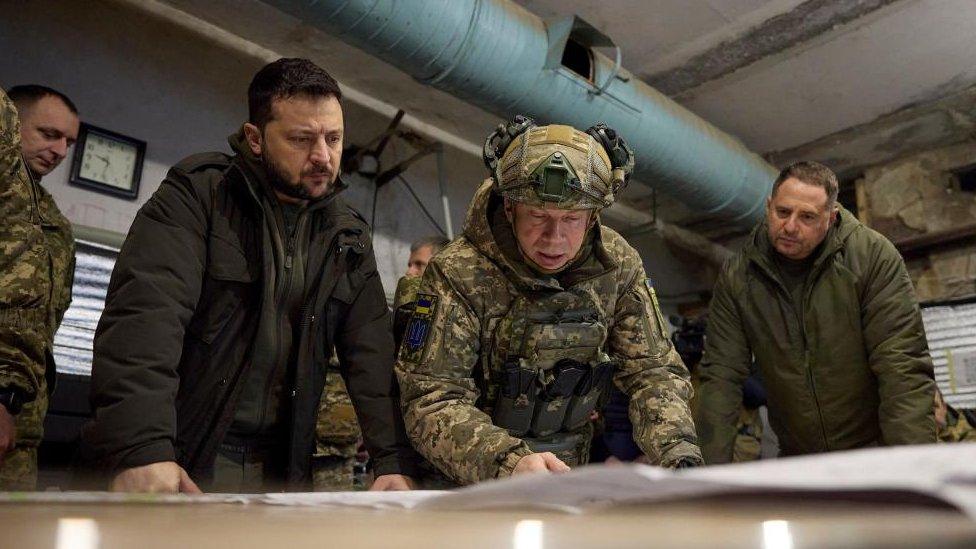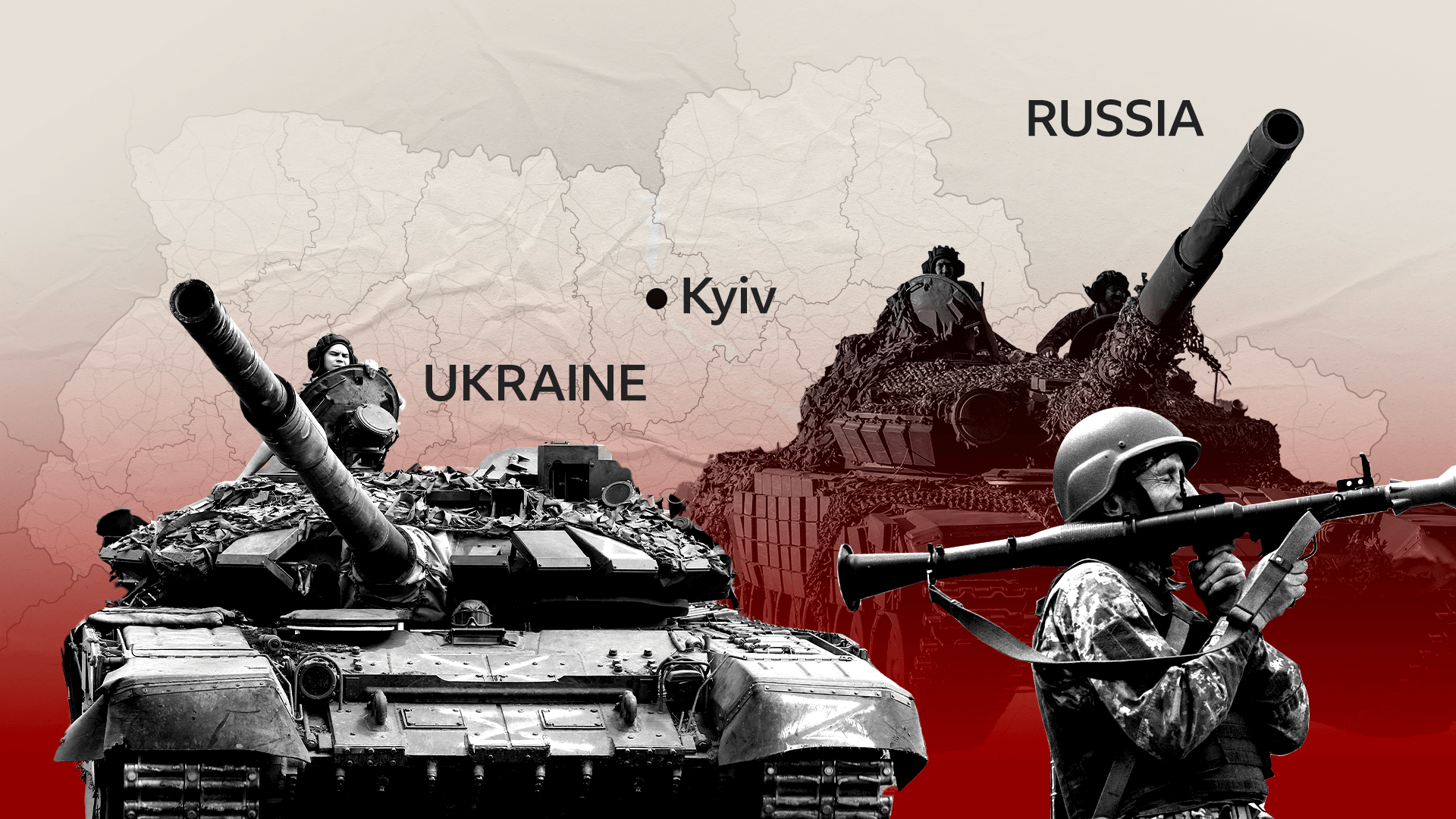Ukraine war: Zelensky speaks out as US stand-off imperils war effort
- Published
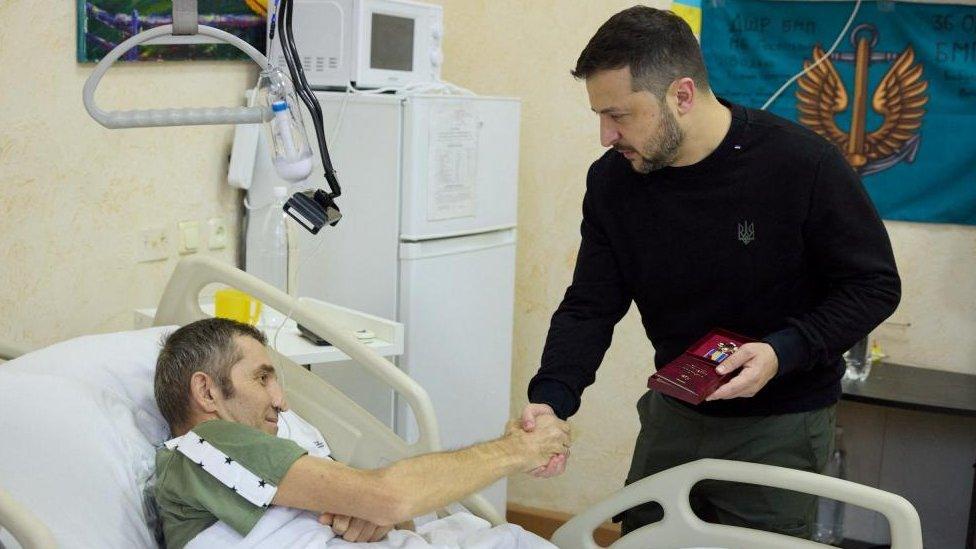
President Zelensky meets an injured serviceman in hospital
Ukraine is facing some of its most difficult days since the start of Russia's full-scale invasion.
The much-anticipated counter-offensive appears to have stalled, and the US and EU are struggling to agree fresh financial and weapons aid. And the world's attention is diverted by the Israel-Gaza war.
After a package of help from the US became embroiled in wider Congressional squabbles, Ukrainian leader Volodymyr Zelensky warned that Moscow was waiting for the US and Europe to show weakness.
"Russia hopes for only one thing - that next year the free world's consolidation will collapse," he told a video meeting of Western leaders from the G7.
President Joe Biden appealed to Congress to "do the right thing". "This cannot wait," he said.
In Kyiv officials are outwardly positive - and a sense of public defiance remains - but you can also detect a darker mood.
"Confidence in victory has become a bit thinner than it was a year ago," says Iryna, who is with her husband Oleksandr on Kontraktova Square in the Ukrainian capital.
She starts to cry, recalling life before Russia's full-scale invasion.
"We're walking now on this square, remembering how we celebrated new year here a few years ago; there was a symphony orchestra playing here and it was so beautiful.
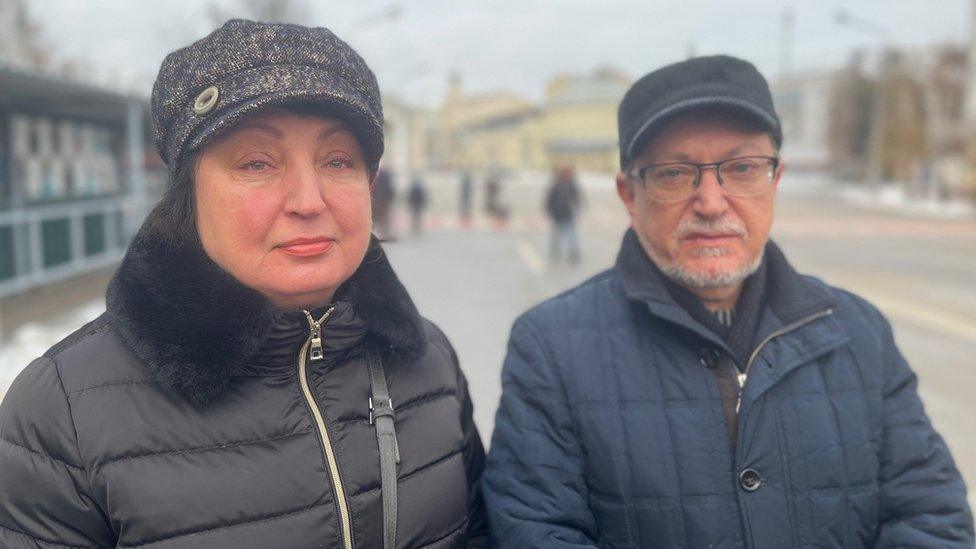
For Iryna and Oleksandr, foreign aid is essential for Ukraine's war effort
"We'd like very much this to return to our lives and for Ukraine to win. We really need help from abroad, because it's very hard for us."
President Zelensky abruptly cancelled a virtual meeting with US lawmakers on Tuesday.
No official reason was given but it came ahead of a possible Senate vote on Wednesday on an aid package that looks doomed to fail.
The $105bn (£83bn; €97bn) spending bill includes $61bn for Ukraine and most of the rest for Israel, Taiwan and the US southern border.
But Republicans look set to vote against it after the meeting that was due to feature Mr Zelensky via video link descended into bickering over the border measures. Several lawmakers walked out.
Ukraine's ambassador to the US, Oksana Makarova, insisted there were still grounds for cautious optimism while conceding: "We are not yet where we would like to be." Meanwhile, the US announced a further $175m of weapons and equipment for Ukraine from existing resources.
European Union plans to sign off €50bn (£43bn; $54bn) in economic assistance, and start formal talks for Ukraine to one day join the EU, are also in doubt.
"Everything is in danger," said one Brussels diplomat, as Hungarian Prime Minister Viktor Orban has threatened to veto the proposals ahead of a summit next week.
Mr Orban, who has kept up bilateral ties with President Putin, says it's "highly doubtful" Ukraine will win against Russia, even if Europe sends further aid.
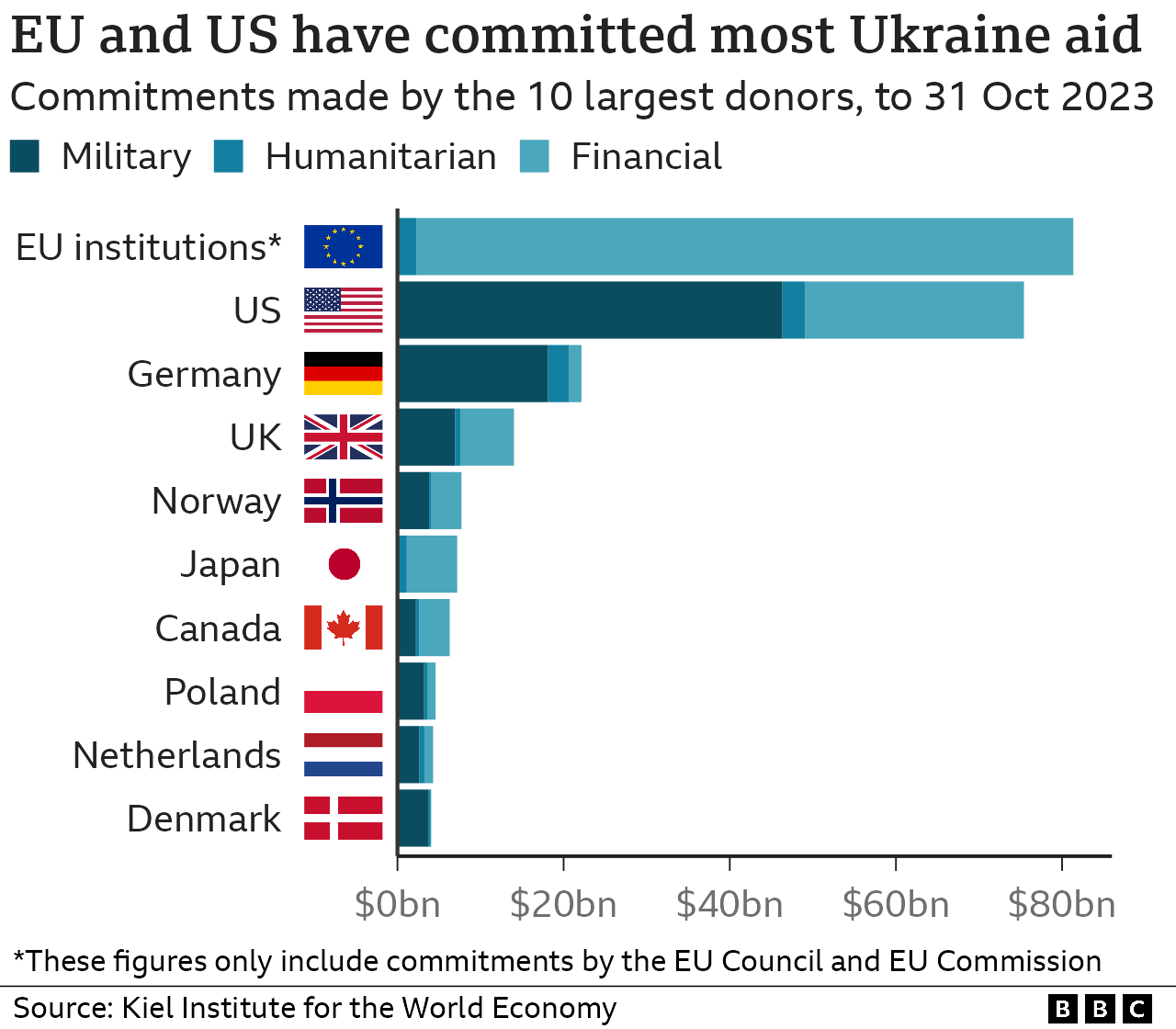

"Of course we need support, we are protecting the whole of Europe," said Tetyana, who became tearful as she told the BBC her son was serving on the front line.
"We need more weapons, because our children are dying."
Wrangling and trade-offs are part of any political system but it's getting "harder and harder" to obtain Western support, admits Ukrainian opposition MP Oleksiy Goncharenko.
He's a member of the parliament's US-Ukraine friendship group and has been in Washington DC meeting members of Congress and US government officials.
Whilst he believes backing for Ukraine remains strong, he warns that agonising waits for new aid are damaging.
"When the West was saying, we'll be with Ukraine for as long as it takes, does the West just really mean two years? Is two years as long as it takes?
"The only person that benefits from what's going on now is Putin."
There was huge anticipation about Ukraine's counter-offensive, which finally began in June.
But already there are endless post-mortems as to why the effort has failed, with analysts pointing to problems such as a lack of air superiority, strategic miscalculations and heavily fortified Russian defences.
"You can forget about every good plan when active action begins," says defence analyst Oleksandr Musiienko at Kyiv's Centre for Military and Legal Studies.
While he thinks the counter-offensive is coming to an end, it will be important not to let the Russians "rest" this winter.
Long-range strikes in occupied territory and localised offensive operations must continue, he believes, while Ukraine could prepare for a fresh offensive next year.
"Even with these hard times, we have chances," he says, especially once further weapons arrive.
"We need long range missiles, drones and more artillery shells."
Russia has always had time on its side as well as a huge resource of manpower that Ukraine can never match.
In Kyiv, there have been reported tensions between President Zelensky and his top general, Valerii Zaluzhnyi, who told the Economist last month that the war was at a "stalemate".
But Ukraine still has the will to fight because for Ukrainians this war is existential and there is a push to boost the domestic production of arms.
However, there is no doubt that weapons and funds from partners abroad remain crucial.
"For a decisive victory, we need comprehensive, urgent support!" declared Oleksandr Vasiuk, a Ukrainian MP and member of President Zelensky's party.
"We are confident that the US and the EU see the picture clearly and will be able to overcome their differences," he told the BBC.
Kyiv pensioner Volodymyr also took a firm tone as he told me: "Evil must be destroyed."
"They should understand it in the US, in the EU, and in the entire world."
Related topics
- Published21 September 2023
- Published1 December 2023
